|
|
|||||
This week, our team of experts assesses how recent European elections may impact Africa-Europe relations and international development. |
|||||
|
|
|||||
Why Europe needs AfricaAfrica will be home to one in four people globally by 2050. Its workforce will swell by nearly 700 million compared to today. Meanwhile, Europe’s workforce will shrink by 71 million. 1.5 billion Africans will be of working age in 2050, more than double Europe’s entire population of 700 million. These diverging demographic trends hint at a basic truth: Europe needs Africa. Managing migration, climate change, and pandemic preparedness will require European cooperation with Africa. As my colleague David McNair highlights in an edited volume published this week, Europe operates with the assumption that it is more advanced than African countries. European leaders view Africa as beset with problems that can be solved if it emulates Europe (which has its own share of problems). African leaders have chafed at this attitude and the West’s inconsistent application of its values. They rightfully want to be treated as equals, not economic or political pawns. And a changing geopolitical landscape is giving them leverage to demand it. They are looking forward, and the future looks promising. A critical question is whether European leaders are able and ready to treat African countries as strategic partners rather than aid recipients. The recent parliamentary elections in the EU and France and the General Election in the UK offer opportunities to reset European relations with Africa, as my colleagues detail below. – Joe Kraus, Aftershocks Editor Aftershocks beyond the voting boothEUrocentric: Though the outcome of the recent European Parliament election wasn’t the far-right surge many feared, it was the far-right’s strongest showing ever in European elections. The centre-right EPP and centre-left S&D groups hold the most seats. But beware: Having a strong political centre in the European Parliament doesn’t necessarily equate to centrist EU policies. The far-right's success at the national level has been influencing the policy positions of the European centre for at least a decade. This is especially true on issues like migration and, increasingly, climate policy. Next week, members of the European Parliament will cast a secret ballot to elect the new European Commission president. Current President Ursula von der Leyen has received the backing of member states, but can she convince the centre to endorse her? – Emily Wigens, EU Director Starmer tsunami:The UK Labour Party surged into power following the 4 July election, winning 412 of 650 parliamentary seats. New Foreign Secretary David Lammy has long talked about instituting a UK-Africa strategy. That would be refreshing: Previous UK governments largely neglected the UK’s relationship with Africa. The Labour Party has signalled that its approach to development will be informed by the Global South’s priorities and be rooted in forming “partnerships of equals.” The new government is expected to:
The Labour party supports returning UK foreign assistance to 0.7% of GNI “when the fiscal circumstances allow.” Given the myriad fiscal challenges facing the new government, it might be a long time coming. A crucial first step will be getting a grip on spiralling in-donor refugee costs: Nearly one-third of UK aid is spent domestically. – Lis Wallace, UK Director Macron’s gamble: Whilst the left-wing alliance and President Emmanuel Macron’s centrist party performed better than expected in the second round of France’s parliamentary election (finishing first and second), it was still seen by many as a victory for extreme-right ideas, including anti-immigration. The extreme right won 143 seats this year, compared to only 8 in 2017. The left-wing alliance has supported a financial transaction tax – one of the main direct sources of funding for the country’s foreign aid budget. And its rhetoric on funding foreign aid has been positive. But view that cautiously: The last time the left was in power (2012-2017), France’s foreign aid budget was cut. 👀 Meanwhile, France’s clout in Africa has diminished. Its relations with former colonies Burkina Faso, Mali, and Niger greatly deteriorated last year as growing anti-French sentiment spread across the Sahel. France’s domestic turmoil and potential political instability could overshadow (re)building African partnerships. – Charlotte Grignard, France Senior Media Manager From the ONE Team
The numbers
 |
|||||
|
|
|||||
Quote of the week
|
|||||
|
|
|||||
What you should read, watch, and listen to:
|
|||||
|
|
|||||
A look ahead15 July: Rwandan general election 15-17 July: High-Level Political Forum on Sustainable Development, New York City, US 18 July: Nelson Mandela Day |
|||||
|
|
|||||
The ONE Campaign’s data.one.org provides cutting edge data and analysis on the economic, political, and social changes impacting Africa. Check it out HERE. |
|||||
|
|
|||||
|
|
|||||
Did you like today's email?Loved it Mehhh Hated it |
|||||
|
|
|||||
Did you like today's email?Loved it Mehhh Hated it |
|||||
|
|
|||||
Wie hat dir dieser Newsletter gefallen?Richtig gut! Ging so… Überhaupt nicht. |
|||||
|
|
|||||
|
|||||
|
|||||
|
|||||
|
This email was sent by ONE.ORG to test@example.com. You can unsubscribe at any time. ONE Campaign |
